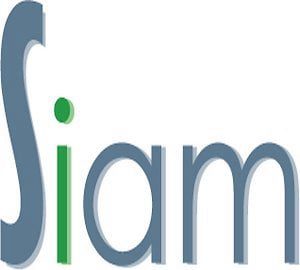Chemical suppliers: Be vigilant against ECHA assessments!

Image: PxHere
Chemical suppliers: Be vigilant against ECHA assessments! – A joint recommendation letter is issued for members of the chemical industry on the European Chemicals Agency’s (ECHA) Assessment of Regulatory Need (ARN) reports. Eurometaux, International Fragrance Association (IFRA), FuelsEurope and Downstream Users of Chemicals Coordination Group (DUCC) advise chemical suppliers to remain alert to the incoming assessments.
ARN is a preparatory step by ECHA to investigate the need for potential regulatory risk management for substances. It is a tool to understand and improve the preliminary assessment of chemical safety.
5,000 substances evaluated in groups
From 2019 to 2022, ECHA has evaluated around 5,000 substances in groups. Based on group evaluations, around 60% of substances do not require further regulated risk management. For the remaining 40%, additional data collection and generation is required – possibly through a compliance audit – before potentially moving to regulatory risk management. The assessed substances can influence the fragrance industry and advise on which chemicals to avoid.
Not legally binding
The joint declaration states that the ARN groups build on available information and use a practical approach to prioritize areas of interest based on common characteristics such as uses, hazards and chemical structure.
The ARN has no legal implications. IFRA and other companies declare that the results have no legal or regulatory relevance as they are not part of formal regulatory management and decision-making processes.
On a voluntary basis
The ARNs are developed by the Agency on a voluntary basis, which means that the process uses selected information and assumptions for a screening level assessment to help the Commission and Member States understand if and where regulatory action may be required.
Report recommendations
Eurometaux, IFRA, FuelsEurope and DUCC provide recommendations for chemical suppliers, consortia and downstream users:
- Read carefully: Understand the assumptions in the report, taking into account missing information and the type of screening level.
- Update dossier: Keep your registration dossier up to date by correcting outdated information and filling identified data gaps. ARNs are based on up-to-date dossier information on chemical composition, quantity and use; if the correct information is not updated, incorrect information will be returned during the ARN review.
- Feedback to ECHA: Find errors. Inform ECHA via the feedback button. Stakeholder input can lead to updates.
- Prepare for action: Gather data for upcoming public consultation and evidence gathering, for example more detailed usage information or critical applications, anticipate possible regulatory action and proactively update dossiers (if necessary), especially if there is perspective for further regulatory action.
- Notify customers: Keep customers informed about potential regulatory actions.
- Stay up to date: Deadlines for regulatory action vary. Stay up to date via relevant channels such as the PACT list, ECHA newsletter, Restriction Roadmap and Registry of Intention.
Transparency and insight
In addition, the associations point out that the ARN reports are not a final judgment. In their opinion, “robust justifications from the authorities are required for the management of regulatory risks.” Peer-to-peer communication also shows that the ARN reports contribute to transparency and insight into the authorities’ priorities. However, the associations point out that this is a screening level and that the industry’s responses to the ARN results are currently not publicly accessible.
Tools
In addition, the associations say the reports help companies focus on substances that need further research or clarification, streamlining their efforts. The ARN also allows the sector to prepare for possible regulatory action based on informal signals.
Source: Food Packaging Forum
Also read: Do you export to California?
Reservation
This information has been compiled with the greatest possible care, in some cases from different information sources. (Interpretation) errors are not excluded. No legal obligation can therefore be derived from this text. Everyone dealing with this subject has the responsibility to delve into the matter!

Trackbacks/Pingbacks